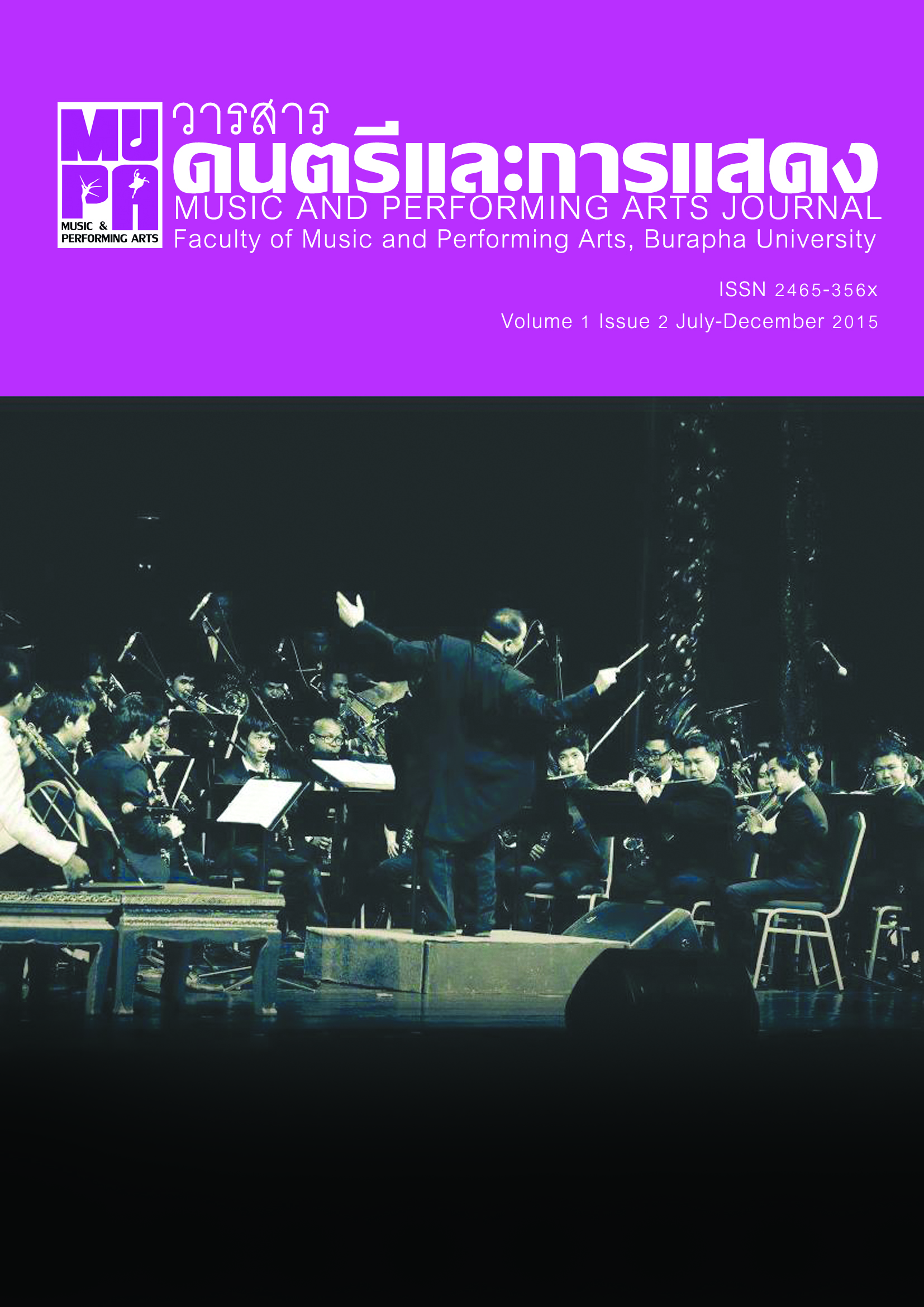Cultural Fingerprints: An Evolving Curriculum in Contemporary Music Composition
คำสำคัญ:
music composition, education, intercultural research, Southeast Asiaบทคัดย่อ
The western conservatory tradition requires substantial study in European music history, theory, counterpoint, and orchestration in order to provide the necessary qualifications to pursue composition. This process favors imitation as a means of gaining a practical understanding of historical forms. Because it is rooted in the practice of European music this course of study excludes a serious investigation of other traditions that may play a central role in one’s cultural identity. The degree to which this forms barriers for young composers from Asia is a particular concern of mine. I advocate for a shift in priorities that raises the profile of Asian cultural practices as a vital part of becoming a composer. My paper refers to writings by Chou Wen-chung, who wrote persuasively on this topic, and by José Maceda, whose inquiries into Southeast Asian music uncovered a rich terrain. I use my own work as an example of how the study of one’s particular heritage can help inform a personal creative voice. My intent is not to suggest models, but rather to suggest possible paths that better suit those of us from Asian backgrounds so that we can take advantage of the richness this provides.



